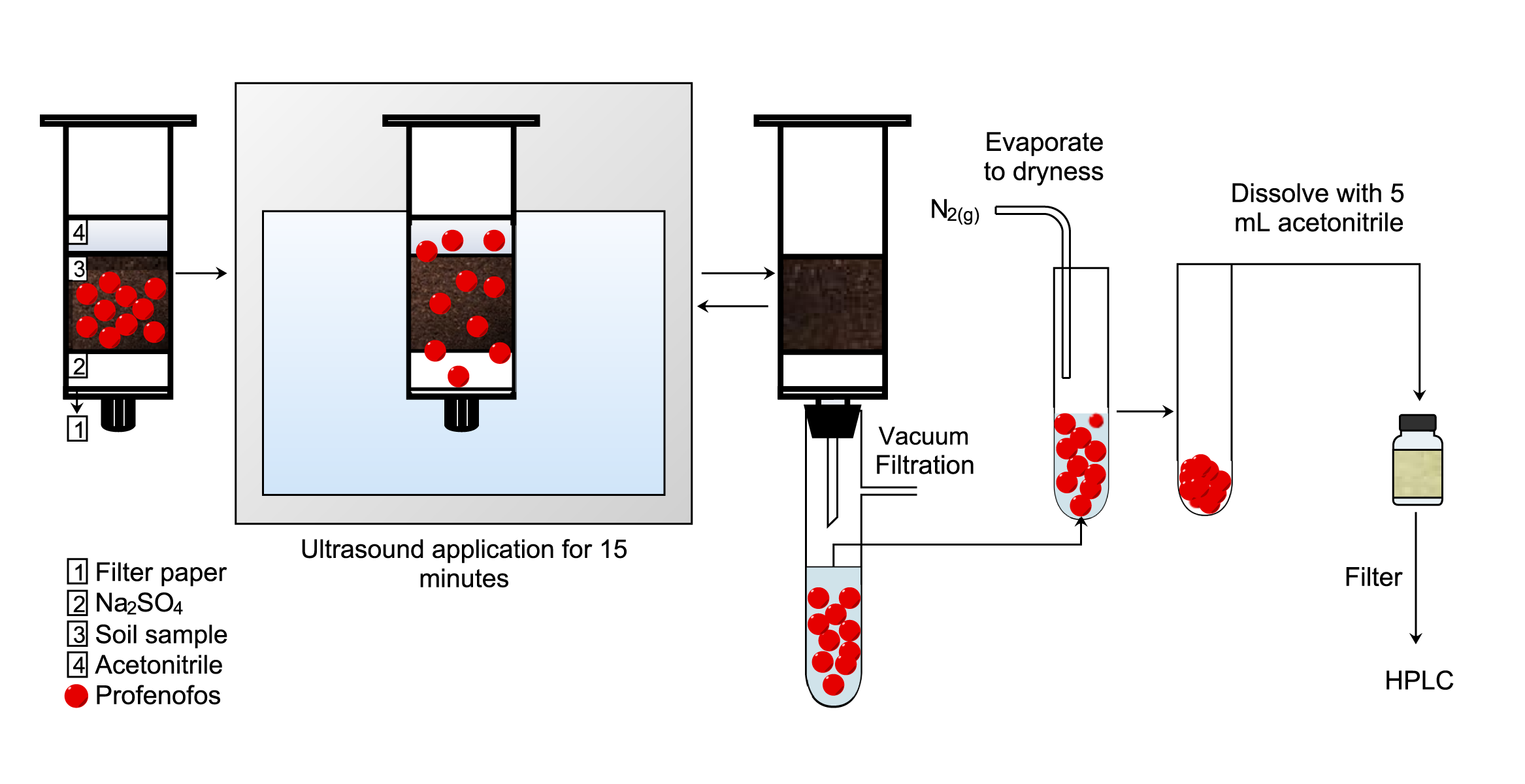 |
|
The use of profenofos (PFF) increased due to its effectiveness against pests resistant to other organophosphates (OP). Its presence in the environment could produce acute or chronic poisoning for people who use it for daily agricultural activities as well as for people who get in contact with polluted soil, water, air or food. In this context, proposing alternatives to accelerate OP degradation processes is important. Therefore, the objective of the present study was to evaluate for 28 days the degradation process of PFF in soils with 50 mg PFF/kg (pH = 7.20 + / - 0.31) using Eisenia foetida (EF) and native bacteria (NB). The "control group" showed a PFF degradation of 52.95 +/- 1.69% in sterilized soils. NB achieved a degradation of 63.60 +/- 3.27%, EF degraded PFF by 72.65 +/- 1.92% and the combination of EF and NB, 79.21 +/- 1.79%. Bacteria with potential PFF degradation capacity were isolated and identified as Klebsiella oxytoca and Pseudomonas aeruginosa. It was shown that EF play an important role by accelerating the degradation of PFF in soils, presenting a possible synergy with Klebsiella oxytoca and Pseudomonas aeruginosa.
Keywords: Eisenia foetida, Klebsiella oxytoca, Pseudomonas aeruginosa, degradation, profenofos.
|
|
 |

